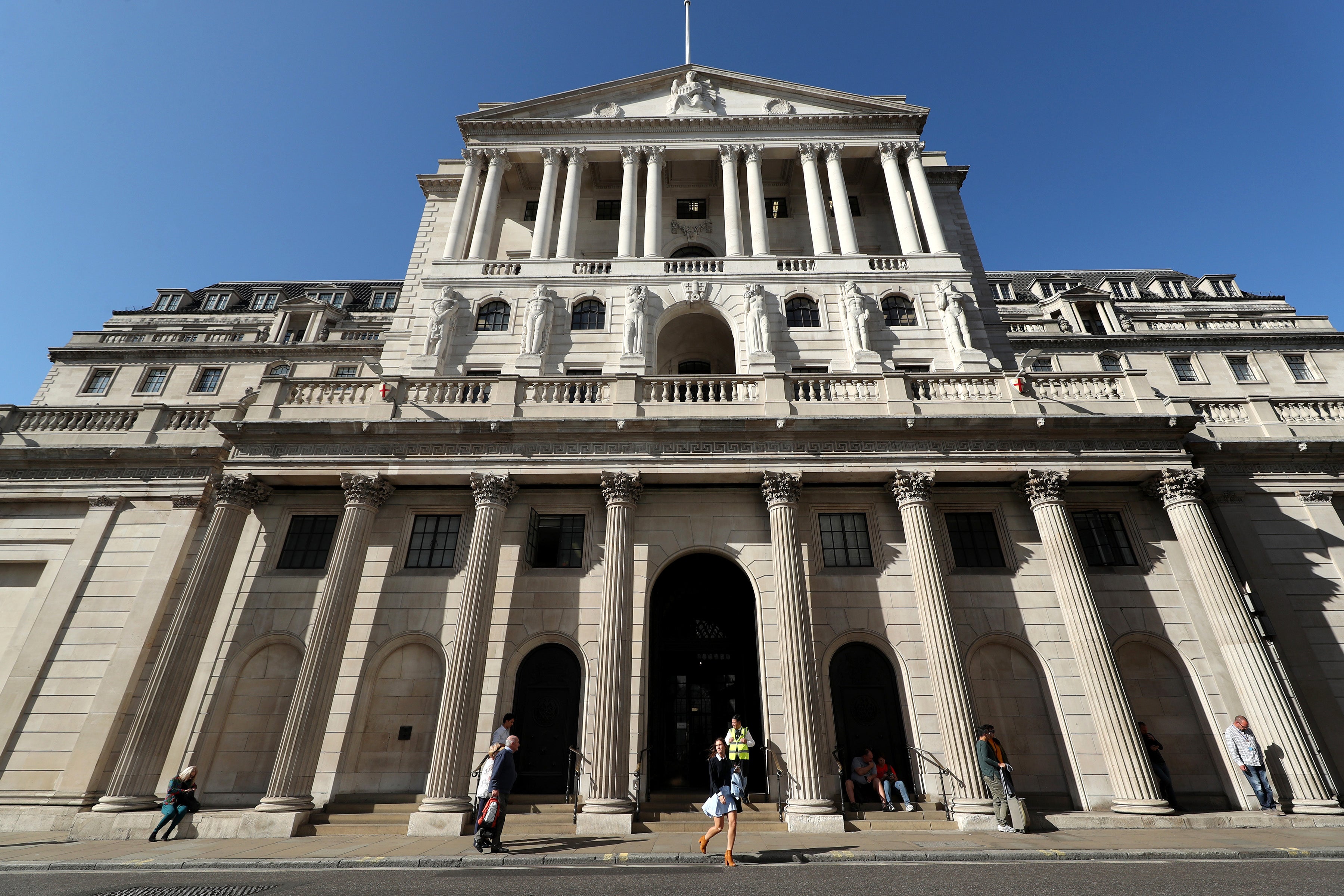Bank hikes rates to 0.5% as households face worst income hit since at least 1990
The Monetary Policy Committee voted 5-4 to raise rates from 0.25% to 0.5% – marking the first back-to-back rise since 2004.

Your support helps us to tell the story
From reproductive rights to climate change to Big Tech, The Independent is on the ground when the story is developing. Whether it's investigating the financials of Elon Musk's pro-Trump PAC or producing our latest documentary, 'The A Word', which shines a light on the American women fighting for reproductive rights, we know how important it is to parse out the facts from the messaging.
At such a critical moment in US history, we need reporters on the ground. Your donation allows us to keep sending journalists to speak to both sides of the story.
The Independent is trusted by Americans across the entire political spectrum. And unlike many other quality news outlets, we choose not to lock Americans out of our reporting and analysis with paywalls. We believe quality journalism should be available to everyone, paid for by those who can afford it.
Your support makes all the difference.The Bank of England has raised interest rates to 0.5% and signalled more increases are on the way as it warned rocketing inflation will see the worst hit to household income for at least 32 years.
The Bank’s Monetary Policy Committee (MPC) voted 5-4 to raise rates from 0.25% to 0.5% – marking the first back-to-back rise since 2004, coming after a quarter point increase at its last meeting in December.
Four of the nine members called for a steeper rate increase – to 0.75% – to help put the brakes on rampant inflation.
It came as the Bank cautioned that rocketing energy prices will drive inflation to an eye-watering peak of 7.25% in April, which is the highest level since August 1991.
In a gloomy prediction for under-pressure households, the Bank said this will see disposable incomes, post tax and inflation, fall by around 2% – the worst impact since Bank records began in 1990.
Ofgem’s 54% energy price cap increase to around £1,971 in April is the driving force behind the inflation forecast hike, with the Bank predicting around another 10% rise in the cap this October.
But its forecasts do not take into account the Chancellor’s package of measures announced on Thursday, offering £350 support for the majority of UK households.
Bank governor Andrew Bailey said the Government support would help take some of the pressure off households.
However, in response to concerns that the Bank’s rate rise comes at the worst time for households, he said: “If we don’t take this action, it (inflation) would be even worse.”
He added: “We have not raised interest rates today because the economy is roaring away.
“An increase in Bank rate is necessary because it is unlikely that inflation will return to target without it.”
The Bank said while the economy is expected to bounce back quickly from an Omicron impact in December and January, growth will then slow to “subdued rates” as inflation impacts spending.
This is set to send Britain’s jobless rate rising from 4% this year to 5% in 2024.
The Bank also announced the start of so-called quantitative tightening, by allowing its £895 billion quantitative easing programme to begin winding down naturally.
It will stop reinvesting money in further assets when gilts and bonds mature, while it will also begin selling off its £20 billion corporate bonds portfolio.
The Bank added that “some further modest tightening in monetary policy is likely to be appropriate in the coming months”, but it cooled financial market forecasts of a flurry of rate rises in 2022.
It predicts that inflation will undershoot its 2% target in the medium term if rates rise to 1.5% by the middle of 2023, as financial markets expect, signalling it will take a more cautious approach.
In a sobering alert on the impact of rising inflation on consumers and the wider economy, the Bank said sharp rises in energy prices and the cost of goods amid supply chain pressures will weigh on spending and growth.
“This is something monetary policy is unable to prevent,” cautioned Mr Bailey.
The Bank downgraded the growth outlook to 3.75% in 2022 and 1.25% in 2023 from the 5% and 1.5% respectively predicted in November.
It forecasts that the economy contracted by around 0.5% in December due to Omicron, but rose 1% overall in the fourth quarter of 2021.
Growth will then remain flat in the first three months of 2022, though with a recovering picture in February and March, which will see the economy recover to its pre-pandemic level once again by end of the quarter.
The outlook after 2022 is less rosy, with inflation pressures leaving growth languishing at around 1% in the following two years.